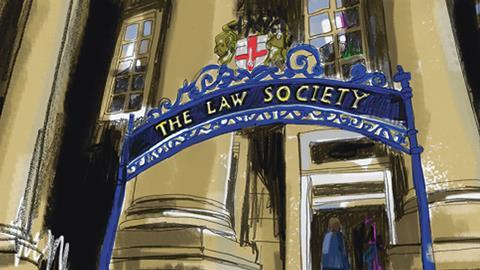The Conveyancing Quality Scheme quickly became a vital tool in combating fraud and money laundering. Next month the quality mark is going properly digital, reports Jonathan Rayner
Solicitor firms engaged in conveyancing are now more vulnerable than ever to fraud and money laundering, it has emerged. This is thanks to a combination of factors. Covid-19, lockdowns and other unprecedented business disruptions saw many solicitors reassessing their life choices and leaving the profession, with the result that there are now fewer qualified and experienced practitioners to do the work.
Those solicitors who opted to stay the course, on the other hand, found themselves embroiled in a newly revived housing market, with unsustainably long hours and a never-ending flow of new instructions crossing their desks.
Inevitably, some of these latter solicitors have become burnt out, others resigned before it is too late. The result, again, is there are now too few, already tired and stressed-out, practitioners adequately to manage the workload. It is a recipe for chaos. Mistakes have crept in and there is the ever-present temptation to cut corners, with the potential to cost law firms dear in terms of reputation and revenue.
The Law Society introduced the Conveyancing Quality Scheme (CQS) in conjunction with mortgage lenders back in 2010. Its aim was and remains to help firms be 100% compliant with all current anti-fraud and anti-money laundering rules and thereby avoid this year’s and other sorry scenarios. The accreditation criteria have been revised twice since then, most recently in May 2022. CQS is centred on the Core Practice Management Standards (CPMS), which is an exhaustive list of requirements necessary for a firm to attain and maintain compliance with the rules.
For example, everybody involved in every conveyancing transaction undertaken by the firm must be trained in the CQS principles of best practice. Has everyone in the firm been identity checked? (There are documented cases of organised crime infiltrating firms with their own people.) Has the firm incorporated the Lexcel requirement to have a register of plans and policies? And has it also started running induction programmes?
CQS chief assessor and East Kent firm Boys & Maughan consultant Peter Rodd explains how conveyancing became vulnerable. ‘CQS has been helping firms who are swamped with work,’ he says, ‘but Covid scuppered our best efforts to begin more on-site visits to pinpoint problems. We had 200 such visits scheduled for 2020, but they have had to be postponed. We can only really begin making substantial changes depending on what the eventual site visits tell us. And so burnt-out solicitors continue to leave the profession in their droves.’
It is not only conveyancers who are suffering. The legal profession is the second most stressed profession in Britain, with 63% of respondents telling an insurance company survey that they suffer stress every day at work. (The most stressed profession, according to the same survey, is human resources.) Law Society head of accreditations Eleanor O’Reilly-Joe, working with Rodd and Law Society change manager Ola Daniel, proposes a solution. ‘We have spent two years upgrading our technology to transform the accreditation application process from paper-based to digital,’ says O’Reilly-Joe. ‘So much paperwork was required for the paper-based process that often a document was simply missing, whereas the online process is transparent as to the data required. It will even prompt you if something necessary has been left out.
'CQS has been helping firms who are swamped with work but Covid scuppered our best efforts to begin more on-site visits to pinpoint problems'
‘It is much quicker, too. The online form is shorter than the paper-based version, with fewer questions and boxes to be ticked. The programme will also automatically pre-populate sections where we already have the information we need; this means no more scrabbling around at the last moment to find documents that you have filed somewhere safe. It is easier, too, to see where you are in the application process and what information you still need to submit to complete your application. In summary, it would take up to 75 days to process the paperwork, while the online system takes around just five days.’
Despite the scepticism of some practitioners back in 2010, who dismissed CQS as simply another way for the Law Society to milk its members, few would nowadays argue that CQS – scrupulously implemented – radically reduces the risk of fraud and money laundering. It is certainly time something was done to tackle fraud, which is being described as the UK’s commonest crime, costing our already creaking economy some £137bn each year.
Not all fraud is conveyancing-related, of course, but Rodd draws our attention to a couple of cases where property was very much at the centre of the crime. ‘There was the case of a woman,’ relates Rodd, ‘who owns a four-bedroomed house in South London valued at £850,000. She returned from a three-week trip to find her letterbox taped up and a metal post box fixed in its place. Curious, she thought. And then two weeks later she received a letter from the Land Registry titled ‘Completion of registration’. Her home had been registered in someone else’s name and was on the brink of being stolen.
‘And then there was the case of the Luton clergyman who in August 2021 reported the theft of his home. Proceeds of the sale were understood to be £131,000.’ What fiendishly ingenious scam did the fraudsters employ? Rodd replies: ‘They simply ordered a replacement driving licence and changed the photo!’
The new Platform will be launched in November, to a few firms by invitation, and released to all firms in due course.
































2 Readers' comments